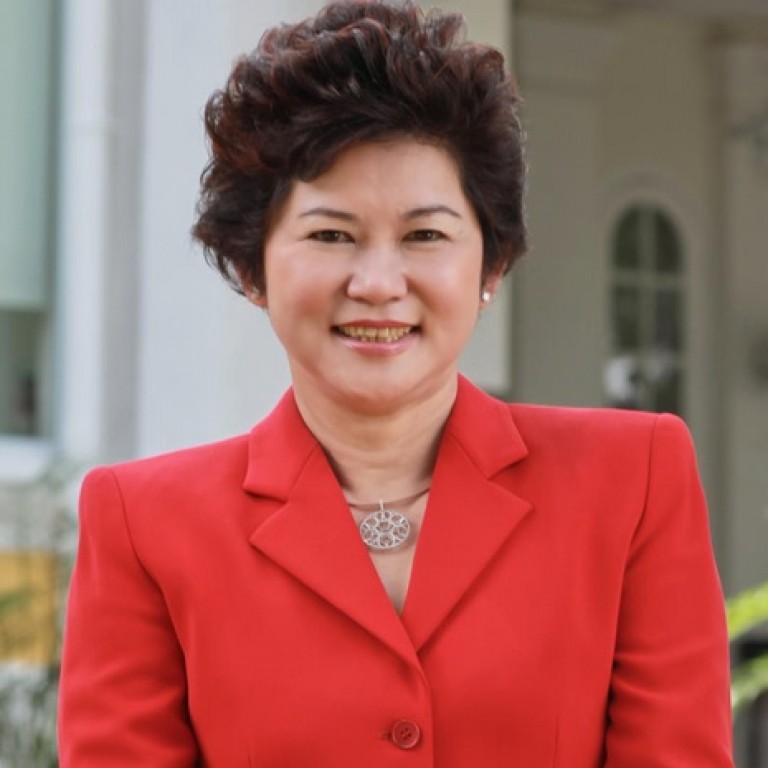
Learning Curve: adaptability and problem solving are the keys to career questions
Ng Gim Choo, thefounder of EtonHouse International, is often asked how she sets up her schools.
"In the old days we imparted knowledge and we asked children what occupation they would like to pursue when they were older. However, there is a limit to what we can teach, and in an ever-changing world knowledge soon becomes obsolete," says Ng.
Inquiry-based learning, the ethos of her schools, turns occupations into an inquiry topic; students are encouraged to consider not occupations but the roles people perform in society.
Teach a child to be inquisitive, and give them skills to obtain knowledge
"When children start thinking 'I am a student' and begin considering what their role as a student [involves], they begin to take responsibility for their thinking and learning. Teach a child to be inquisitive, and give them skills to obtain knowledge," says Ng.
Ng highlights two things that students completing their high school diplomas and university studies this summer need to give serious thought to as they consider careers and joining the workforce: what role do I want to play in society? Am I taking responsibility for acquiring skills to perform that role efficiently?
In a recent interview, Laszlo Bock, who is in charge of hiring at Google, said: "Analytical training gives you a skill set that differentiates you from most people in the labour market.
"The first thing Google looks for is general cognitive ability - the ability to learn things and solve problems. A knowledge set that will be invaluable is the ability to understand and apply information. And that kind of thinking does not have to come from a computer science degree."
Bock says that he found a statistics course at business school "transformative for his career".
Ng also speaks of acquiring skills and taking them to different roles. Although her grandmother encouraged her to get a college education so that she could "find a good husband", her first role was that of an accountant with Ernst & Young in her native Singapore. When her husband moved to Britain, she devoted herself to being a wife and mother. It was there that Ng observed methods that made her realise that there was a need for a child responsive "Inquire-Think-Learn" early years programme in Singapore. Upon returning home she became an entrepreneur, establishing the EtonHouse Group, which now operates 92 schools across Asia and the Middle East.
Ng procured certificates in early childhood care and education, a certificate in pre-school management and administration and a masters in educational management. Adapting and obtaining appropriate knowledge to inform any role is an intrinsic element of success.
Adaptability also requires a baseline skill set that, according to Bock in his interview, allows an individual to "be a call centre operator today and tomorrow be able to interpret an MRI scan. To have built the skill set that allows you to do both things requires a baseline capability that is analytical." And this needs to start in early childhood, Ng says, and so inquiry-based learning is a very powerful concept.
Recently, primary school textbooks in the local education sector have come under fire for teaching material that reinforces racial stereotypes already prevalent in society.
The idea that students need to have a transferrable skill set to perform different roles could be one way to address racial stereotyping. Perhaps when students are taught that people from different cultures, countries and ethnicities play similar roles in their societies, stereotyping will decrease.
The Implicit Association Test allows scientists to measure our unconscious stereotypes and social science research backs up findings that even those stereotypes people are not aware of can subconsciously influence decision making.
Daisy Grewal, a former research scientist in the Office of Diversity and Leadership at the Stanford University Medical School, says: "Making people more aware of these processes helps them self-correct and thereby reduce the negative effects of stereotypes on decisions."
As Ng says, consider what role you want to perform in society, and work towards acquiring that skill set.

